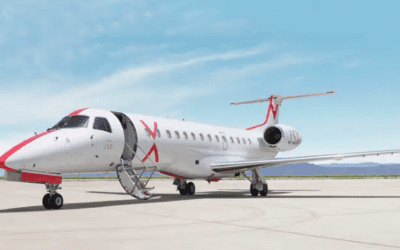Spotting fake reviews that skew ratings at online travel sites can save a journey as you plan it.

According to the Pew Research Center, 82 percent of American adults say they have sometimes read online customer ratings and reviews, with 40 percent saying they almost always consult online ratings and reviews before making a purchase of goods and services. This makes spotting fake reviews more important than ever.
Unfortunately, depending on online reviews can result in poor purchase decisions, as many of the reviews are fake and skew product and service ratings. For example, Fakespot CEO, Saoud Khalifah, estimated that 30 percent of Amazon reviews were unreliable. This was concluded in a study of reviews at the online marketplace from 2018 through 2020.
No website, however vigilant, is impervious to fake reviews resulting in distorted ratings.
We are unaware of a website that allows customer reviews that is immune from fake reviews. Skewed ratings can be found on all websites, including travel sites like TripAdvisor, Booking.com, and Expedia.
There are ways that we can try to discriminate between dishonest and honest reviews. I’ve got ten tips to help you read between the lines to find candid, genuine reviews and ratings.
If almost all of the reviews are five-star or one-star reviews:

All the positive or negative reviews come from first-time reviewers:
This is another red flag for me. Generally, it is a larger red flag than if all the reviews are great or terrible. Don’t believe it’s possible that all at once a cluster of people who have never written a prior review are stirred to do so at the same moment. Therefore, if reviewers for a particular business are suddenly all or mostly reviewers with first or second-time reviews, I don’t trust them.
If the establishment doesn’t have many reviews:
Many reviews may be honest for a travel business. However, if there are very few of them, it’s almost impossible to judge whether or not you can depend on them. Believe them at your own peril.
A sudden increase in the number of reviews plus reviews short on detail almost always means they’re fakes.
If an establishments suddenly gets scads of reviews:
When I look at reviews, the first thing I do is determine when they were posted. When I see a pile of positive reviews posted within a short time frame, I’m concerned that they’ve been written by employees or there was an advertising mailing sent out. Other times, if they’re all negative, then I’m concerned that they were written by a competitor trying to gain a big edge.
Reviews have little detail:
Fake reviews don’t often mention details. They typically offer little or no description of the establishment they’re reviewing. They generally give little explanation about why they are saying the business is good or has a problem. We see this often, with the reviewer using lots of superlative or hateful language and few, if any, specifics.
When the reviews contain over-the-top, repetitive language:
Fake reviews often use extravagant statements, positive or negative, that are repeated several times with similar phrasing.

Multiple reviews with similar thoughts, grammar, and language, as well as stock or reused photos, almost always mean they’re fakes.
If new reviews share similar thoughts, grammar, and language with just a few variations:
When multiple reviews share the same basic language and grammar, expressing similar thoughts — either negative or positive — about an establishment, they are likely written by the same person and are fake.
If the review seems to have stock or professional photos to illustrate the review:
Photos typically enhance the credibility of a review. They are most important when illustrating problems such as peeling paint, worn or damaged furniture, and poorly cleaned room conditions in a hotel. If the photo seems too good to be true, I check it out through a service such as Google Images. If it’s a stock photo or one that’s been used for other reviews, you know it’s most likely a fake review.
Check to see if the establishment is reviewed on multiple websites:
Read reviews on multiple locations on the web; do so to try to obtain the best information possible.
The old adage about being “too good to be true” is accurate about online travel reviews.
It may be an age-old adage, but if something’s too good to be true, it likely is. If your judgment tells you the review is too good to be true then assume it’s fake.
Sometimes it’s extremely easy to pick through reviews of hotels, restaurants, and other travel-related locations, but sometimes you need to have a very wary eye because it can be difficult to separate honest reviews from fakes. The tips I’ve described above can help you determine if a review is fake, to save you problems when you take your journeys. Another way to help ascertain the quality of a hotel, restaurant, or other establishment is to use professionally written online recommendations and reviews. In addition, recommendations by travel professionals who have been to the destination you’re considering can be particularly insightful.
READ ALSO:
Why are pandemic commodities free to cross borders but humans are not?
A dozen tips to help when flying with young children
After many years working in corporate America as a chemical engineer, executive and eventually CFO of a multinational manufacturer, Ned founded a tech consulting company and later restarted NSL Photography, his photography business. Before entering the corporate world, Ned worked as a Public Health Engineer for the Philadelphia Department of Public Health. As a well known corporate, travel and wildlife photographer, Ned travels the world writing about travel and photography, as well as running photography workshops, seminars and photowalks. Visit Ned’s Photography Blog and Galleries.



